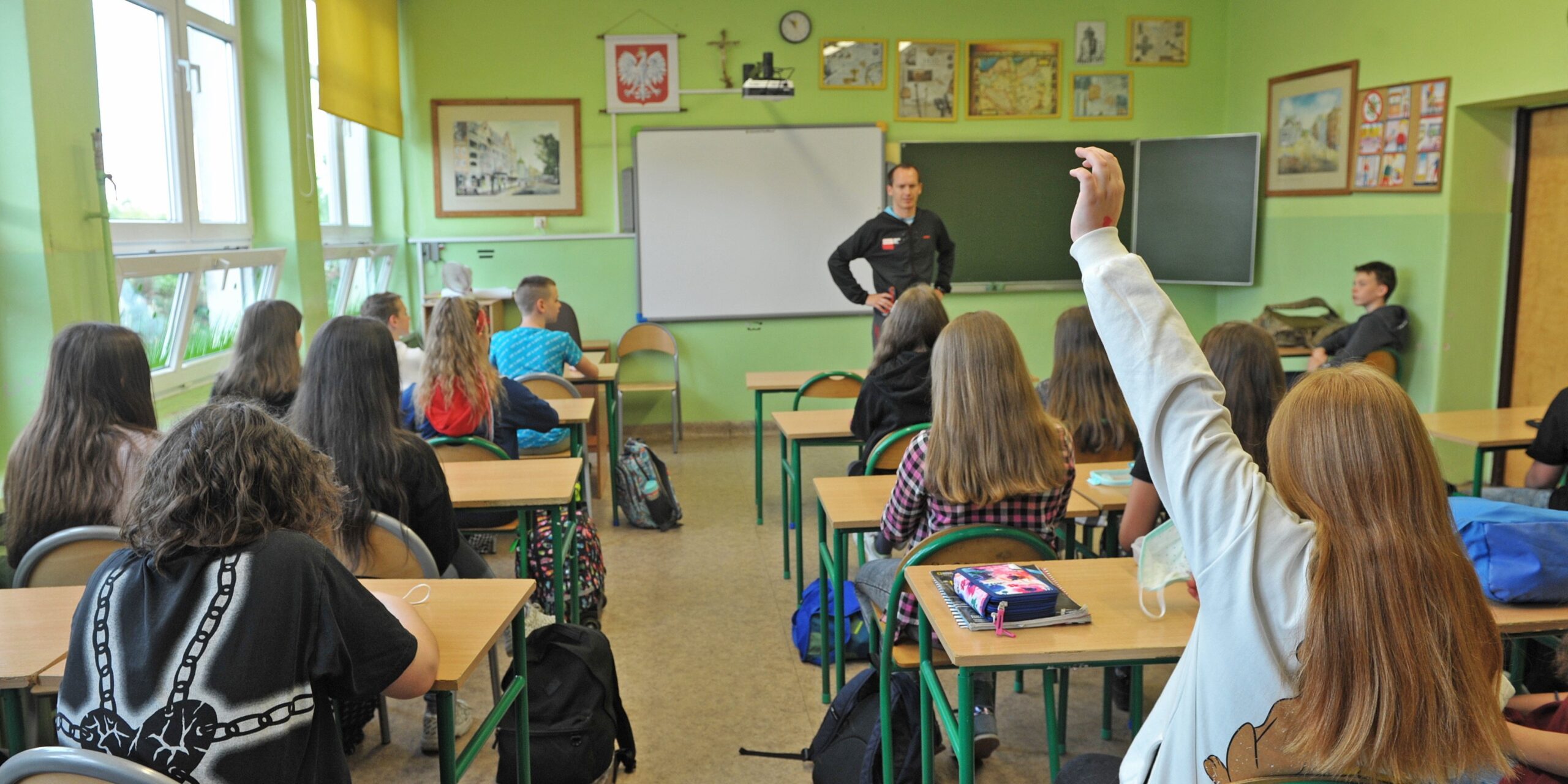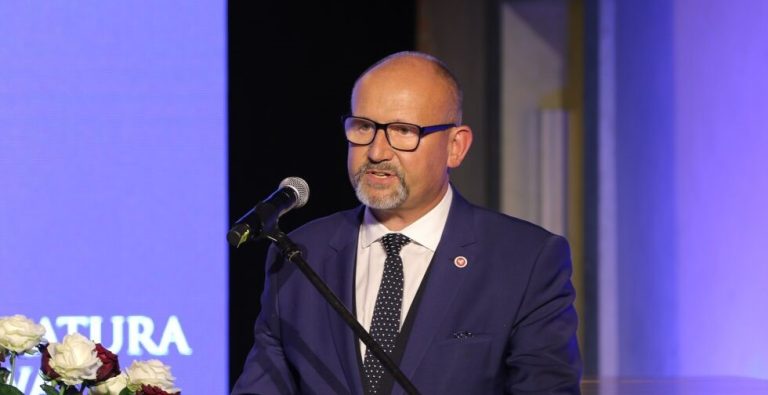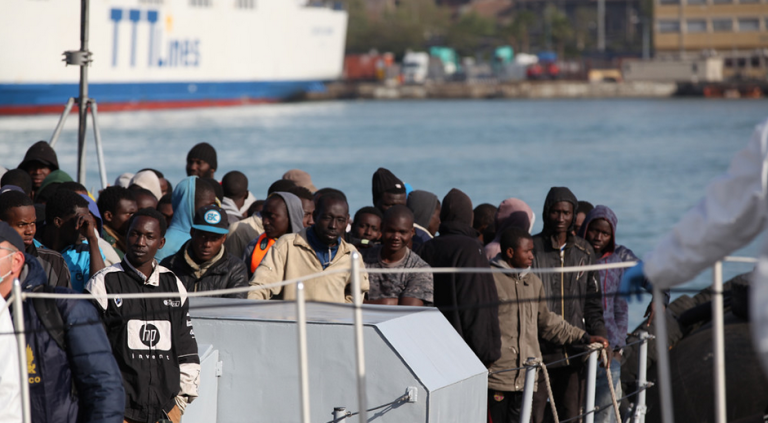Opposition criticises education ministry for approving Polish-German history textbook

A history textbook produced by a team of Polish and German experts and recently approved by the education ministry has stirred controversy among opposition politicians from the Law and Justice (PiS) and Confederation (Konfederacja) parties.
While in power, PiS approved the first three textbooks in the series but in 2023 blocked the fourth and final one, claiming that it misrepresents events in Poland’s history.
Czy naprawdę doszło już do tego, że historię II Wojny Światowej dla naszych dzieci muszą pisać Niemcy? pic.twitter.com/M83SRgseXz
— Michał Dworczyk (@michaldworczyk) August 24, 2024
The series – designed for school grades five to eight – was initiated in 2008 by Radosław Sikorski and Frank-Walter Steinmeier, the then-foreign ministers of Poland and Germany.
The German-Polish Textbook Committee – a group established in 1972 under the auspices of UNESCO, a UN agency devoted to culture and education – then helped realise the project.
The first textbook in the series was inaugurated in 2016 in Berlin by Steinmeier and Witold Waszczykowski, foreign minister in the former PiS-led government. PiS approved two more textbooks but blocked the fourth one, which covers the period from the Second World War until the present day.
PiS claimed that the textbook diminishes the role of the Roman Catholic church in Poland across this period, misinterprets the Warsaw Uprising, and prioritises the fall of the Berlin Wall over events in Poland, reported the Gazeta Wyborcza daily.
The authors of the textbook appealed to Steinmeier – who by that time had become Germany’s president – and PiS-aligned Polish President Andrzej Duda, but to no avail.
They then withdrew the application for approval. “It was necessary to wait for better times,” Andrzej Dusiewicz, the Polish coordinator of the textbook project, told Deutsche Welle (DW).
Sorry to interrupt your reading. The article continues below.
Notes from Poland is run by a small editorial team and published by an independent, non-profit foundation that is funded through donations from our readers. We cannot do what we do without your support.
At last October’s parliamentary elections, however, PiS lost power and were replaced in December by a Donald Tusk-led coalition.
The fourth textbook was officially approved by the new Polish education ministry on 8 July. “For me, this is the project of a lifetime. I feel great satisfaction that it has been successfully completed,” Dusiewicz told DW.
“This textbook is a milestone. It is the first general history book to devote as much space to Central and Eastern Europe as to Western Europe,” Hans-Jürgen Bömelburg, German co-chairman of the German-Polish Textbook Committee, told DW.
But the decision has stirred controversy among opposition politicians from the PiS and Confederation parties.
“Has it really come to the point where the history of the Second World War has to be written for our children by the Germans?”, PiS MEP Michał Dworczyk wrote on Saturday on X.
Jest Donald Tusk. Jest i niemiecki podręcznik dla polskich dzieci. Powiedzieć skandal to nic nie powiedzieć. Już wiecie dlaczego od lat szerokim strumieniem płynęlo „wsparcie” @KASonline dla @Campus_Polska @trzaskowski_. Niemiec daje, Niemiec wymaga. pic.twitter.com/glKTlnnfeT
— Janusz Kowalski 🇵🇱 (@JKowalski_posel) August 24, 2024
“So less than a year after Tusk won the election, the Germans are writing our history books? And about the Second World War?”, the Confederation MP and presidential candidate Sławomir Mentzen asked on X.
“We have Donald Tusk. We have a German textbook for Polish children. To say it is a scandal is an understatement,” wrote PiS MP Janusz Kowalski on X, referring to allegations regularly made by PiS that Tusk is a tool of German interests.
Kowalski also alleged that the government approved the textbook after receiving funding for Campus Polska Przyszłości – an annual event for young people in Poland that brings together politicians from the ruling coalition – from the German Konrad Adenauer Foundation.
Polish church organisations have petitioned the Supreme Court to challenge government changes to school religion classes.
They say priests will be at risk of losing jobs, and query the legality and constitutionality of the new regulationhttps://t.co/KwOnDO2Gpu
— Notes from Poland 🇵🇱 (@notesfrompoland) August 23, 2024
PiS has often been criticised for a high school history textbook that it released in 2022 while still in power.
The publication attacked in-vitro fertilisation (IVF) and talked about the “decay to the institution of the family” caused by “medical advances and the offensive of gender ideology”. It asked: “Who will love the children produced this way?”
The book also contained controvesial content about the Black Lives Matter movement, saying that “it is characterised by a certain disdain, one could even say hatred, towards white people”.
The current prime minister and then-opposition leader Donald Tusk was among the many who criticised the textbook, resulting in then-education minister Przemysław Czarnek suing him.
Poland’s government recently „slimmed down” the school curriculum, cutting 20% of content.
We asked five education experts for their assessment of the cuts and how they will affect education https://t.co/3F4lpZ0Ypt
— Notes from Poland 🇵🇱 (@notesfrompoland) July 19, 2024
Main image credit: Anna Lewanska / Agencja Wyborcza.pl

Agata Pyka is an assistant editor at Notes from Poland. She is a journalist and a political communication student at the University of Amsterdam. She specialises in Polish and European politics as well as investigative journalism and has previously written for Euractiv and The European Correspondent.






